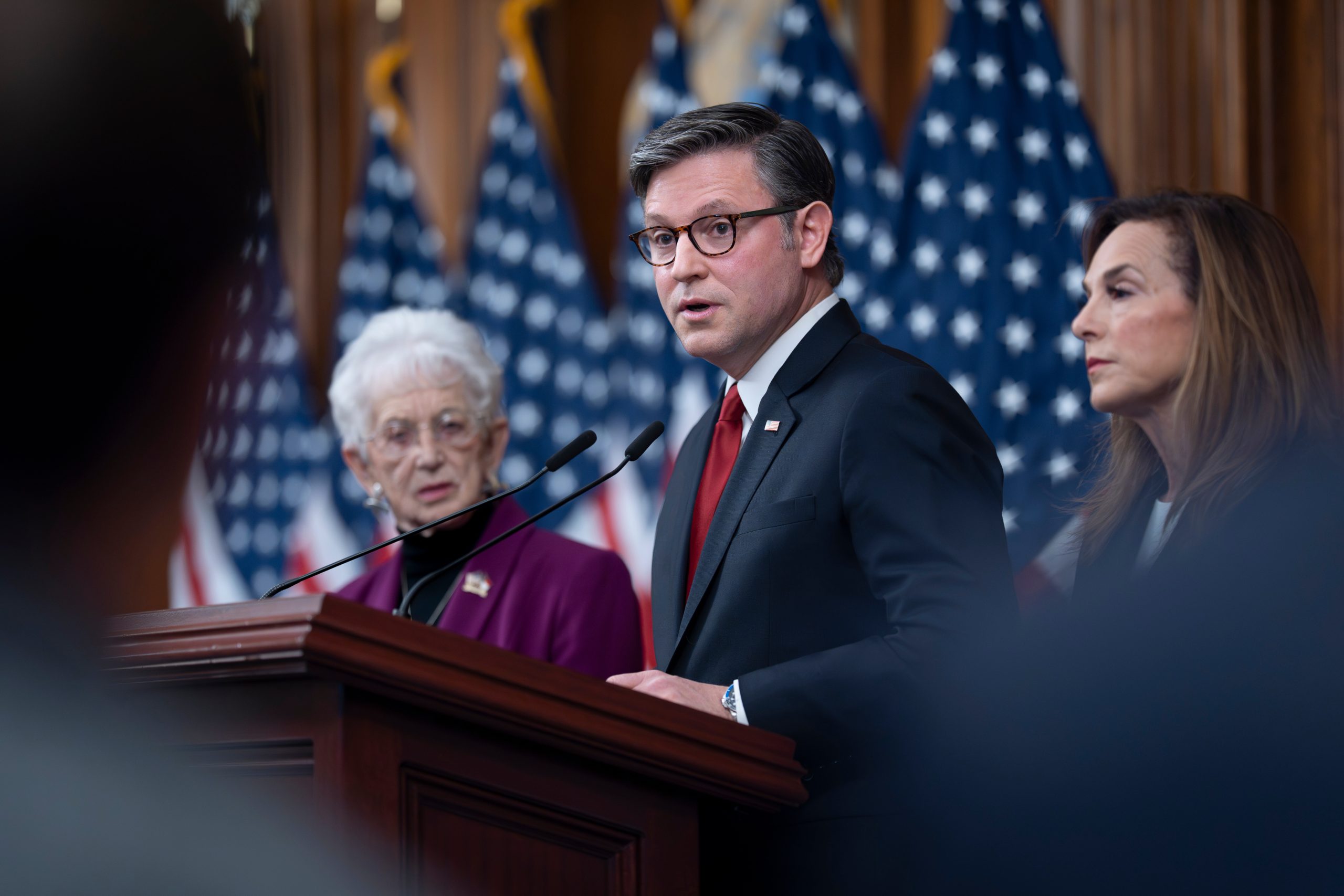Federal Government Shutdown Nears Record Length Amid Ongoing Standoff
WASHINGTON — The federal government shutdown continued grimly this week, coming closer to outpacing the second longest in American history—a 21-day Clinton-era shutdown over opposition to large spending cuts.
The U.S. House remains in recess because Speaker Mike Johnson, R-La., refuses to reconvene the chamber until Senate Democrats approve his short-term spending bill. However, Senate Democrats are holding firm on their demands that any bill to reopen the government must reverse GOP cuts to Medicaid and extend premium subsidies that help many Americans purchase insurance on Affordable Care Act exchanges.
With no compromise in sight, there’s little hope for an early end to the standoff. Some lawmakers are projecting the shutdown could continue well into November.
Related: Shutdown Blog: The latest on the federal government shutdown and its impact on Minnesota
Impact on Federal Workers and Legal Developments
Meanwhile, most federal workers—except those in the military—missed a paycheck this week. However, there was some good news: U.S. District Judge Susan Ilston on Wednesday temporarily blocked the Trump administration’s plans to lay off thousands of federal workers during the shutdown.
Judge Ilston sided with the unions representing federal employees who filed the lawsuit, arguing that the dismissals were illegal.
Democrats Turn to Soybean Politics Amid Shutdown
Some Democrats are focusing their messaging on the crisis facing soybean farmers, a group hard-hit by President Donald Trump’s tariff policies, which prompted China to boycott U.S. soybeans. The soybeans issue has become central to Democratic efforts to win over farm country voters, where they see Republicans as vulnerable.
The Democratic National Committee (DNC), led by former Minnesota DFL Party chair Ken Martin, launched a campaign-style advertisement this week highlighting the financial pain these tariff policies have caused soybean farmers. The ad features John Bartman of Marengo, Illinois, a fifth-generation farmer, who states, “Soybean farmers don’t want a bailout. We want a market.”
“Bailouts are Band-Aids,” Bartman said. “What (Trump) is doing is destroying our markets, and when those markets disappear, we’re not going to get them back.”
The ad is currently running in congressional districts across Iowa, Wisconsin, Michigan, Missouri, Ohio, and Kentucky—areas where Democrats hope to make gains in the midterms—but not in Minnesota.
Minnesota Leaders Join the Push Against Trump’s Tariff Policies
Bartman also joined a DNC press call this week headlined by Minnesota Governor Tim Walz, who is running for reelection. Walz criticized Trump’s tariff policies and highlighted a controversial $20 billion credit swap offered to Argentina shortly after that country suspended its commitment to sell at least 7 million metric tons of soybeans to China.
“It’s going to take us years to get these markets back,” Walz said, referring to China and other overseas buyers of American farm products.
Walz further underscored his stance during an event Wednesday at a soybean farm near Faribault, continuing his critique of Trump’s policies.
Other Minnesota leaders have also weighed in. State Auditor Julie Blaha and Minnesota Farmers Union President Gary Wertish held a press call Thursday to “highlight how President Donald Trump’s administration’s policies are undercutting Minnesota’s economies and unsettling America’s farming communities.”
Meanwhile, U.S. Representative Angie Craig (D-2nd District), the highest-ranking Democrat on the House Agriculture Committee and a candidate for retiring Senator Tina Smith’s seat, has scheduled an event at a soybean farm this weekend to maintain pressure on the administration and GOP.
Senator Tina Smith also attempted—but failed—to secure Senate approval this week for a bill that would prohibit Trump from providing Argentina with the $20 billion credit swap.
“It’s a slap in the face to American farmers who had their markets undercut by Argentina,” Smith said. “That money should be spent on our own citizens, who are just trying to scrape by and figure out a way to make their lives work while everything seems to get more expensive.”
Trump Administration Plans Additional Financing for Argentina Amid Criticism
The Trump administration stirred further controversy when Treasury Secretary Scott Bessent announced Wednesday that his agency is working on a partnership with private-sector banks and other entities to provide an additional $20 billion in financing for Argentina.
“While family farmers in Minnesota and Maine are losing business to Argentina, the Trump Admin is organizing a $40 billion bailout to Argentina because who needs to reopen the government when you could just spend all your time and energy finding taxpayer dollars to give to our top agricultural competitors?” Representative Angie Craig remarked on social media.
The Political Landscape in Rural America
Democrats have steadily lost political influence in rural America, and it remains unclear how the soybean-centered campaign will affect their standing. President Trump has promised to cover farm losses tied to his tariff policies. He previously provided support during his first term when tariffs were more limited and focused primarily on China.
However, questions remain about whether Trump can secure the billions of dollars needed this time to compensate American farmers fully.
Still, Trump’s support in rural America remains strong. According to a Pew Research analysis, Trump won the 2024 election by 40 percentage points over Kamala Harris in rural areas, surpassing his margins in 2020 and 2016.
Nonetheless, polls from ActiVote show a slight decline in Trump’s approval rating among rural voters from September to October.
Trump’s Increasing Frustration with China
This week, Trump expressed growing frustration with Beijing, issuing a series of threats including a puzzling one to halt all U.S. purchases of Chinese cooking oil—a move that unsettled Wall Street.
“I believe that China purposefully not buying our Soybeans, and causing difficulty for our Soybean Farmers, is an Economically Hostile Act,” Trump posted on social media. “We are considering terminating business with China having to do with Cooking Oil, and other elements of Trade, as retribution. As an example, we can easily produce Cooking Oil ourselves, we don’t need to purchase it from China.”
Additional News and Resources
- Don’t forget to check our new blog for updates on the federal government shutdown’s impact on Minnesota.
- We examined how the One Big Beautiful Bill Act has derailed Minnesota hospitals’ plan to raise $1 billion to offset losses incurred from treating Medicaid patients.
- A recent Fact Brief from our team debunked claims that a federal operation found half of the immigrants living in the Twin Cities have committed immigration fraud.
- We published a series of stories by Matthew Blake on Minnesota’s troubled nursing homes, covering the state’s assistance plan, workforce challenges, opaque finances, and their strong ties to labor unions.
- If you haven’t yet, be sure to watch a conversation filmed at last month’s MinnPost Festival between former U.S. attorneys Andy Luger and Barbara McQuade.
Your Questions and Comments
A reader suggested that the media should hold lawmakers accountable during the shutdown. “Given that the House is not in session, isn’t it a perfect time to invite each of our eight House members to do interviews, press conferences, and town hall forums?” the reader asked.
“I believe my representative, Dr. Kelly Morrison, is doing some of that—being out in public and not hiding behind press releases and public statements.”
The reader continued: “Issue invitations and ask all of them tough questions. For the rural Republican ones, they need to explain why they supported Medicaid cuts that will hit their areas especially hard, tariffs that are destroying foreign sales, and withholding money for power transmission, which is a homeland security issue.”
“And don’t spare Democrats, obviously. Here is one for Rep. Ilhan Omar: What do community leaders need to do to stop young minority males from being recruited to street gangs?”
Please keep your comments and questions coming. I’ll try my best to respond. Contact me at [email protected].



